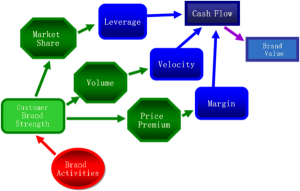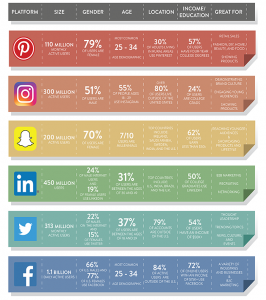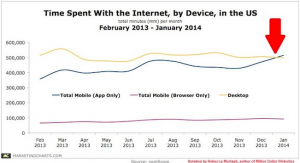Anyone involved in hiring is familiar with a common factor tied to employee churn: People often don’t quit their jobs; they quit their bosses.
Lack of clear direction. Limited opportunity to be heard. Feeling unvalued.
The great irony, of course, is that workplace expectations often set managers, employees and the company itself up to fail. If goals are clearly defined — and that too often is a big if — how to achieve them is not.
Enter Objectives and Key Results (OKRs).
At its core, the goal management methodology is about driving desired outcomes. But when a company invests the time to do them correctly, managers become better managers, workers feel more engaged and the company and its customers prosper.
Here’s how embracing OKRs can make you a better manager of people (and why Henry Ford’s structured workweek might be great for making Mustangs but not so good for motivating high-growth companies):
OKRs give employees an opportunity for growth
OKRs are simple in theory but profound in practice, which is why OKRs software can prove invaluable in mastering the process.
OKRs are grounded in focus and clarity. The objective, of course, is aspirational. It provides context on what we want to achieve. We want to eat healthier.
Key results, on the other hand, are quantitative. They are measurable. They define success for the objective. Eat red meat no more than once a week. Eat fresh fruit daily.
Sometimes identifying the right measurable results is often a struggle. This is OK. Working through this will help you (and your team) get clarity.
OKRs also should stretch people out of their proverbial comfort zone. This also is why OKRs are not a human resources tool. They are not intended to measure performance. OKRs are designed to focus you on a desired outcome.
If you score 100% on your key results, you set the bar too low. Ideally, you set them so that 70% is attainable, but 100% is a real stretch. If you come up short, it’s OK. Knowledge workers and organizations are about learning. “It’s fine to celebrate success,” Bill Gates once said, “but it is more important to heed the lessons of failure.”
Well-considered quarterly and annual OKRs give employees clarity and reward in what they are doing because they give workers a fair opportunity to rise to the challenge.
The No. 1 reason why people quit their jobs, according to online job site Indeed, is needing more of a challenge (a higher salary was No. 2). Other reasons: wanting to feel valued (No. 4), seeking a better management relationship (No. 5), and needing more feedback or structure (No. 7).
Through OKRs, managers have an opportunity to fulfill all of these desires.
OKRs can help employees (and their managers) stay focused
OKRs are as much about what you say “no” to as what you say “yes” to.
By having OKRs, you have a “north star” against which to gut check ideas that may otherwise take you off course. OKRs force an employee to ask herself (and her manager): “How will this help move the needle on my OKR? And if so, how much?”
All of us wake up with a task list a mile long. OKRs provide a filter against which an employee can say, “O, what is the most important task for me to do today to drive the desired outcome?” That brings serenity and clarity — all of which contribute to job satisfaction and a better relationship with a manager since they’re all on the same page. A conversation about prioritization of efforts can be more fruitful, too, because they’re all clear on the desired results.
OKRS give employees a stake in the decision-making
OKRs give employees a sense of ownership in what they do and how that contributes to the company’s overall goals and mission. The OKRs might be set top-down or bottom-up, though a negotiated approach between supervisor and employee is most common among companies whose culture allows for it.
Rather than set top-down, in which a supervisor risks setting objectives or key results an employee may be unable to affect alone, the OKRs are built collaboratively. It’s a fair approach.
And remember, missing the mark is not a sign of failure. Instead, it’s an opportunity. What did you learn? Maybe you haven’t chosen the right results to drive the objective?
The process is transparent and aligned with the OKRs of the team and the overall company.
Remember the Indeed list outlining the top reasons people quit their jobs? No. 12 was wanting a clearer company vision.
OKRs empower employees to drive outcomes, not punch time clocks
Companies are beginning to realize that 9-to-5 efficiency only gets you so far. It doesn’t necessarily drive effectiveness. It doesn’t drive outcomes.
Henry Ford was heralded for ushering in the 40-hour, Monday-Friday workweek in the 1920s, which was later codified by the Fair Labor Standards Act in 1938. Since then a mindset has been ingrained in the American workplace that time is money — the hours you work reflect your value to the company.
OKRs will free you from that industrial-era mindset. The 21st century has ushered in the Knowledge Economy. In this economy, the input isn’t time, it’s knowledge. And organizations should not seek to maximize productivity but rather outcomes. So the name of the game is to empower workers to use their knowledge to drive outcomes. Whether employees work from the office or at home, work 9 to 5 or some random shift, the outcomes are what matters, not the hours on the time card.
In fact, many employees prefer flexible scheduling and telecommuting opportunities. What’s more, many employees are quitting rather than giving up remote work.
OKRs create objectives with clearly defined key results to obtain the objective. If the results and objectives are attained, do you care who stayed late on a Friday night?
No, you don’t.
The win-win-win-win of OKRs
When done right, OKRs can be a manager’s best friend. They clarify goals and job expectations. They empower employees to do their best and grow in their jobs. They also improve the company and its products and services.
That’s a lot of momentum from a handful of bullet points. But OKRs aren’t easy. You have to shift your mindset from hours worked to outcomes achieved. You have to identify OKRs with measurable results and align them through individual employees, the team and the company, which can be challenging. A results management system with a robust OKRs platform can help.
Once you get rolling, though, everybody wins.
Business & Finance Articles on Business 2 Community
(55)







